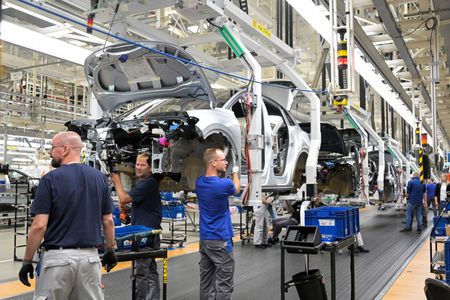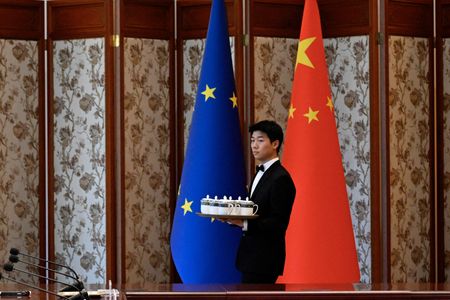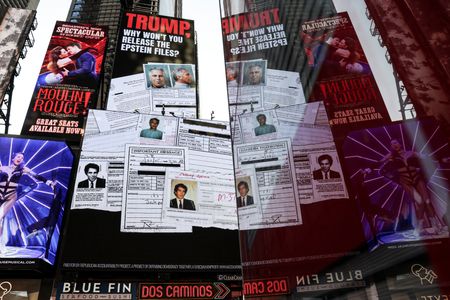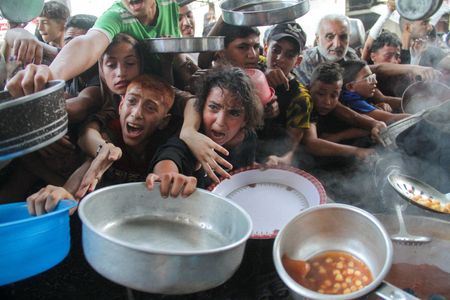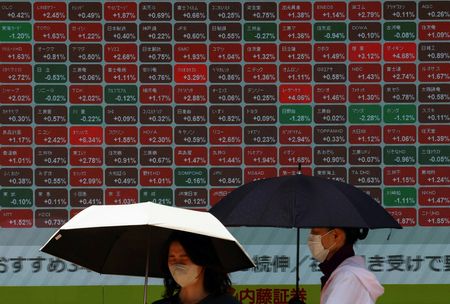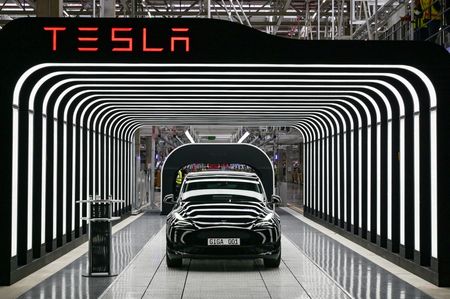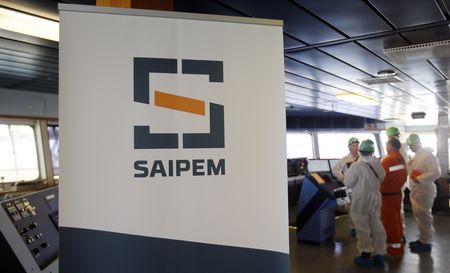BERLIN (Reuters) – The decline in Germany’s manufacturing sector eased in January, helped by the slowest fall in both output and new orders in months, a survey showed on Monday.
The HCOB Germany Manufacturing Purchasing Managers’ Index (PMI), compiled by S&P Global, rose to 45.0 in January from 42.5 in December, marking the highest reading since May last year.
The final reading is nearly a point higher than the preliminary figure of 44.1, but remains firmly below the 50-point mark that separates growth from contraction.
Germany is holding elections on Feb. 23 after the coalition government collapsed late last year, in part due to a dispute over how best to revive Europe’s largest economy.
Production contracted at the slowest rate in eight months, while new orders saw the least marked fall since last May, the survey showed. Export sales also declined, reflecting challenges in foreign markets, but at a slower pace.
German manufacturers continued to cut jobs, extending the current period of workforce reduction to 19 months. The pace of job losses, however, was the slowest since August.
Business expectations improved significantly, reaching their highest level since February 2022.
“In a genuinely positive sign, companies are looking to the future with much more confidence,” said Cyrus de la Rubia, chief economist at Hamburg Commercial Bank AG.
“Some companies justify this optimism with the prospect of lower interest rates and hopes that the economy will pick up after the parliamentary elections with a new government.”
However, de la Rubia said January’s survey was not enough to signal that a sustainable recovery is underway.
“Fear of U.S. tariffs, snap elections and rising insolvencies are not exactly the recipe to end the recession in the manufacturing sector,” he added.
(Writing by Miranda Murray; Editing by Christina Fincher)

